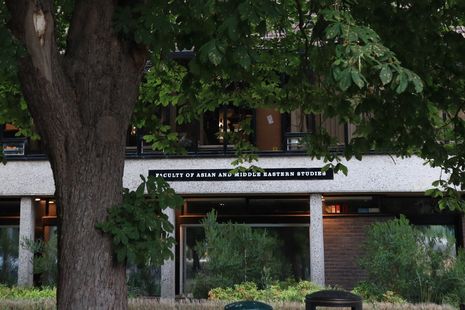Science
Cambridge Project to Unveil Forgotten Sanskrit Scholars in India

A new research initiative led by Cambridge University aims to illuminate the lives of Sanskrit scholars during the colonial period in India. This project seeks to challenge the prevailing notion that British expansion stifled Sanskrit scholarship. Instead, researchers argue that this era, particularly the two centuries preceding British rule, was marked by a vibrant intellectual environment in rural Southern settlements.
The project, funded by the Arts and Humanities Research Council (AHRC), plans to conduct the first comprehensive survey of significant scholarly sites in the Kaveri Delta region of Tamil Nadu. This area was once a prominent center for Sanskrit learning. According to Dr. Jonathan Duquette, the lead investigator from Cambridge’s Faculty of Asian and Middle Eastern Studies, “There were literary geniuses among these men, historically significant figures, but many people in India don’t know them.”
Dr. Duquette emphasized that the research team will explore previously untranslated or unpublished texts, potentially uncovering works that have remained unknown to both Western and Indian scholarship. The Brahmin settlements, known as agrahāra, and monasteries, referred to as maṭha, flourished under the patronage of the Maratha Bhonsle dynasty between 1650 and 1800. During this time, Brahmin scholars were granted land in perpetuity and tax exemptions, allowing them to dedicate themselves to intellectual and artistic endeavors.
In return for this support, many scholars created literary works that celebrated their patrons. For instance, Shahaji Bhonsle, a ruler and poet of the seventeenth century, is depicted in Sanskrit literature as both a generous patron and a romantic figure.
Mapping Historical Intellectual Landscapes
Dr. Duquette and his team aim to identify at least twenty settlements of major intellectual significance, tracing connections between scholars, temples, monasteries, and royal courts. Their methodology will combine archival research with field visits, allowing them to document the current status of these villages and engage with the descendants of their founders.
Dr. Duquette noted that many of these settlements have declined since the early twentieth century. “Many Brahmins have moved away and buildings have been sold, but some descendants remain. We want to understand their legacy and make it better known,” he stated.
The assumption that Sanskrit culture was restricted to royal courts and cosmopolitan centers will be a focal point of the research. Dr. Duquette stressed that the project will demonstrate that Sanskrit scholarship thrived in the countryside, coexisting and engaging with Tamil intellectual traditions.
Titled ‘Beyond the Court’, this project reflects the ongoing commitment of Cambridge’s Faculty of Asian and Middle Eastern Studies to enhance research in Sanskrit and pre-modern Indo-Persian studies. The findings promise to contribute significantly to the understanding of India’s rich literary heritage and the role of lesser-known scholars in preserving it.
As this initiative unfolds over the next five years, it holds the potential to reshape perceptions of scholarly life in colonial India, highlighting a rich tapestry of intellectual pursuit that persisted despite the challenges of British colonial rule.
-

 Entertainment2 weeks ago
Entertainment2 weeks agoAndrew Pierce Confirms Departure from ITV’s Good Morning Britain
-

 Health4 months ago
Health4 months agoFiona Phillips’ Husband Shares Heartfelt Update on Her Alzheimer’s Journey
-

 Health4 months ago
Health4 months agoNeurologist Warns Excessive Use of Supplements Can Harm Brain
-

 Science2 months ago
Science2 months agoBrian Cox Addresses Claims of Alien Probe in 3I/ATLAS Discovery
-

 Science2 months ago
Science2 months agoNASA Investigates Unusual Comet 3I/ATLAS; New Findings Emerge
-

 Entertainment1 week ago
Entertainment1 week agoGogglebox Star Helena Worthington Announces Break After Loss
-

 Science2 months ago
Science2 months agoScientists Examine 3I/ATLAS: Alien Artifact or Cosmic Oddity?
-

 Entertainment1 month ago
Entertainment1 month agoTess Daly Honoured with MBE, Announces Departure from Strictly
-

 Entertainment2 months ago
Entertainment2 months agoLewis Cope Addresses Accusations of Dance Training Advantage
-

 Entertainment5 months ago
Entertainment5 months agoKerry Katona Discusses Future Baby Plans and Brian McFadden’s Wedding
-

 Science2 months ago
Science2 months agoNASA Investigates Speedy Object 3I/ATLAS, Sparking Speculation
-

 Entertainment5 months ago
Entertainment5 months agoEmmerdale Faces Tension as Dylan and April’s Lives Hang in the Balance









